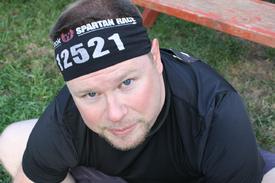How important is measuring food to the nearest GRAM?

hobbesgrrr
Posts: 9 Member
Hello, I am newly diagnosed with diabetes and trying to start eating healthier. I have read the measuring your food is a huge help when starting a new "diet" and learning how to control and measure portions. I own a postal scale (Ultra Ship-75) http://www.oldwillknottscales.com/my-weigh-ultraship75-silver.html
This scale measures g,kg,oz,lbs, and lbs/oz. It measures to the nearest 5g up to 900g then to 10g for higher numbers. My question is do I need to a food scale that measures to the nearest 1 gram or is measuring to 5g close enough?
I was considering buying a digital measuring cup, but it doesn't seem worth it when I have a scale with an AC adapotr. Also, when I am measuring to nearest 5g do I allow for bigger numbers? For example I measured a bag of ww chips and they were higher then they should have been in grams, but I think it was because the scale rounds up and they were in the tiny pouch still sealed.
Thanks for your advice
This scale measures g,kg,oz,lbs, and lbs/oz. It measures to the nearest 5g up to 900g then to 10g for higher numbers. My question is do I need to a food scale that measures to the nearest 1 gram or is measuring to 5g close enough?
I was considering buying a digital measuring cup, but it doesn't seem worth it when I have a scale with an AC adapotr. Also, when I am measuring to nearest 5g do I allow for bigger numbers? For example I measured a bag of ww chips and they were higher then they should have been in grams, but I think it was because the scale rounds up and they were in the tiny pouch still sealed.
Thanks for your advice
0
Replies
-
5g should be fine (unless you eat like 20 individual servings of peanut butter or something, lol). You can also get a nice, accurate one off amazon for like $25 if you want.0
-
measuring to the nearest 5 gram is fine.0
-
I think that measuring to the nearest 5g would be quite OK - but then I think that everything we log is an estimate.
Even if you weigh the portion of the apple you are eating to 86 grams, there is no guaranteeing that it has exactly the same composition as the apple that is listed in the database, so you will probably be a few calories out one way or the other.
And the goal numbers and exercise numbers we are working with are estimates too, so as long as you are pretty close, I think you'll be fine.0 -
I'm interested too0
-
Wow, I am impressed with how quickly you have all replied so far. It was in the first few minutes. Thanks for your advice. I am anxious to see how this discussion progresses.0
-
As someone who weighs just about everything I eat, 5 grams of veggies? Wont make a shed of difference. 5 grams of peanut butter? That's a decent difference.
It really just depends how exact you want to be.0 -
Man, I am probably not even within 5 grams. My scale is analog and measures in ounces. Getting to the nearest half-ounce has been enough so far.0
-
I'm a little crazy about weighing everything so my scale goes to the nearest 2 grams. In the end I think within 5 would be alright for most things.0
-
Good point about the peanut butter. I plan on weighing everything I eat, including cream cheese and peanut butter, but I can use measuring spoons for that. Mostly I'd weight pasta, veggies, fruit, nuts, chips, and meat.0
-
I agree with the others:
* 5 gram precision is fine for most things. It used to be normal for digital scales - like all electronic products they've just improved. The norm is now 1 gram precision with 5 kg max.
* Precision is more important with calorie dense foods. So 1 gram is nice to have.
There are other issues though:
* Would a new scale make you weigh more things? A small light scale might make you use it more because you can move it around the kitchen.
* What's the performance of the alternative measures you use? Many people say volume measures have multiple sources of inaccuracy:
sticky food like peanut butter and honey;
heapable food such as sugar;
compresible food such as flour.
If new scales would make you weigh smaller amounts rather than using volumes, then it's worth considering.
I don't know what to suggest. I'm just thinking out loud.0 -
Hello, I am newly diagnosed with diabetes and trying to start eating healthier. I have read the measuring your food is a huge help when starting a new "diet" and learning how to control and measure portions. I own a postal scale (Ultra Ship-75) http://www.oldwillknottscales.com/my-weigh-ultraship75-silver.html
This scale measures g,kg,oz,lbs, and lbs/oz. It measures to the nearest 5g up to 900g then to 10g for higher numbers. My question is do I need to a food scale that measures to the nearest 1 gram or is measuring to 5g close enough?
I was considering buying a digital measuring cup, but it doesn't seem worth it when I have a scale with an AC adapotr. Also, when I am measuring to nearest 5g do I allow for bigger numbers? For example I measured a bag of ww chips and they were higher then they should have been in grams, but I think it was because the scale rounds up and they were in the tiny pouch still sealed.
Thanks for your advice
It all depends on exactly what you will be weighing. If you are weighing something like cucumber, 5g is negligible, however, stick buttoer on those scales and be 5g out and it can mean a difference of 23 calories and that is on the "light" spread, no idea what normal butter would be. Bear in mind also, that that would be just one entry and if you were to log many different foods during the day and be 20 calories out here and 15 calories out there, it would add up and you could end up scuppering your weightloss attempts.0 -
As someone who weighs just about everything I eat, 5 grams of veggies? Wont make a shed of difference. 5 grams of peanut butter? That's a decent difference.
It really just depends how exact you want to be.
I agree with these. Hell I don't even weigh veggies, they are so low in calories for the amount that you get, I don't see the point. Anything that's quite calorie dense, like nuts, I will weigh and weigh until I am certain that it's almost correct.
I should invest in better scales, there were some digital scales in Morrisons Saturday for £10. I should of just picked them up...0 -
Unless dieting for a comp, +/- 5% won't mean much. However if you are dieting for a show or the like you want to know the difference so you can monitor and adjust the food weights down as you require.0
-
I weigh everything out to the gram. I don't use the stuff in the database unless I can actually check it against the packet. I enter everything as I buy it. If it's not in, I add it. It's a pain at first but it does help. I never estimate anything.
But that's just my way. You may find it just as effective your way
Everyone is different0 -
Like the others said, it matters more for calorie dense foods, but even then it'll all even out. Today it may read your 82 gram portion of nuts as 80, but tomorrow you put 78 grams on and it rounds up to 80. I wouldn't worry about it.0
-
I agree with the others:
* 5 gram precision is fine for most things. It used to be normal for digital scales - like all electronic products they've just improved. The norm is now 1 gram precision with 5 kg max.
* Precision is more important with calorie dense foods. So 1 gram is nice to have.
There are other issues though:
* Would a new scale make you weigh more things? A small light scale might make you use it more because you can move it around the kitchen.
* What's the performance of the alternative measures you use? Many people say volume measures have multiple sources of inaccuracy:
sticky food like peanut butter and honey;
heapable food such as sugar;
compresible food such as flour.
If new scales would make you weigh smaller amounts rather than using volumes, then it's worth considering.
I don't know what to suggest. I'm just thinking out loud.
Thanks for adding to the discussion. You do have a valid point about mobility of the scale. The one I have is very light weight and uses an AC adaptor so I have already used it. I don't cook so I don't need it for flour and stuff yet. It does ounces, but I'm not sure if that is the same as Flow oz. For liquids and such I could use a measuring cup.0 -
I weigh everything out to the gram. I don't use the stuff in the database unless I can actually check it against the packet. I enter everything as I buy it. If it's not in, I add it. It's a pain at first but it does help. I never estimate anything.
But that's just my way. You may find it just as effective your way
Everyone is different
I'm just starting out and so far have checked most items with packaging as well. So far I have found that the site is usually accurate. It did throw me off at first that it rounds all the numbers up until you click and check and find out they were entered correctly.0 -
guess I'm a minority ... I pretty much eyeball everything.0
-
It depends what you eat... cheese is often something like 120 calories per 30 grams, so 5 grams offset can be quite a lot. But it's an upgrade over guesstimating or even worse, going by the volumes written on the packages... this is just terrible.0
-
interested to know0
This discussion has been closed.
Categories
- All Categories
- 1.4M Health, Wellness and Goals
- 398.1K Introduce Yourself
- 44.7K Getting Started
- 261K Health and Weight Loss
- 176.4K Food and Nutrition
- 47.7K Recipes
- 233K Fitness and Exercise
- 462 Sleep, Mindfulness and Overall Wellness
- 6.5K Goal: Maintaining Weight
- 8.7K Goal: Gaining Weight and Body Building
- 153.5K Motivation and Support
- 8.4K Challenges
- 1.4K Debate Club
- 96.5K Chit-Chat
- 2.6K Fun and Games
- 4.8K MyFitnessPal Information
- 18 News and Announcements
- 21 MyFitnessPal Academy
- 1.5K Feature Suggestions and Ideas
- 3.2K MyFitnessPal Tech Support Questions












